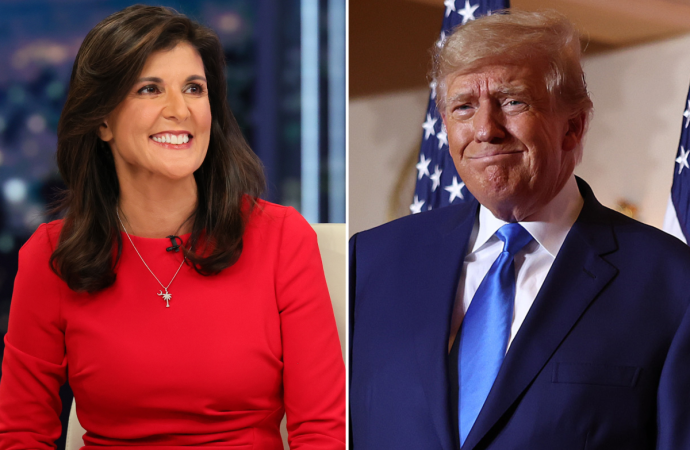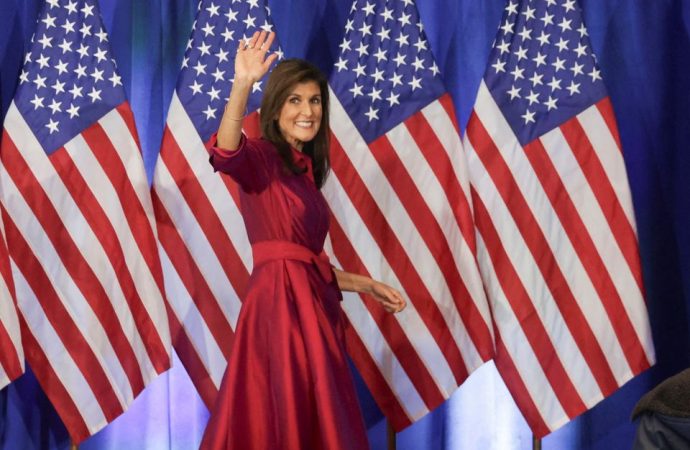Introduction: A palpable clash of ideologies unfolds as former President Donald Trump and Ambassador Nikki Haley articulate conflicting visions of America’s role in global affairs. This article dissects the nuances of their divergent perspectives, delving into the potential ramifications for U.S. foreign policy and the Trump foreign policy broader implications for international relations. Target Audience: This
Introduction:
A palpable clash of ideologies unfolds as former President Donald Trump and Ambassador Nikki Haley articulate conflicting visions of America’s role in global affairs. This article dissects the nuances of their divergent perspectives, delving into the potential ramifications for U.S. foreign policy and the Trump foreign policy broader implications for international relations.
Target Audience:
This article is tailored for readers interested in U.S. foreign policy, political dynamics, and international relations. It aims to provide a comprehensive analysis of the contrasting visions presented by Trump and Haley, exploring the potential consequences for America’s standing on the global stage.
Knowledge Source:
Insights for this article are drawn from Dr. Jennifer Powell, a political science professor specializing in U.S. foreign policy and international relations.
Clashing Perspectives: Trump vs. Haley on America’s Global Role:

This image is taken from google,com
1. Trump’s “America First” Doctrine:
Dr. Powell elucidates the core tenets of Trump’s “America First” approach, emphasizing unilateralism, prioritizing national interests, and challenging international agreements. This vision, she explains, redefines America’s relationship with global institutions and alliances.
2. Haley’s Vision of Engaged Diplomacy:
In contrast, Dr. Powell examines Ambassador Haley’s vision, characterized by a more traditional diplomatic approach. Haley advocates for active engagement with allies, multilateral cooperation, and a commitment to upholding democratic values on the international stage.
Informative Table:
| Key Tenets of Trump and Haley’s Visions | Trump’s “America First” Doctrine | Haley’s Vision of Engaged Diplomacy |
|---|---|---|
| Approach to Alliances | Emphasizes unilateralism, reevaluates commitments to global pacts | Advocates for strong alliances, multilateral cooperation |
| National Interests | Prioritizes domestic concerns over global obligations | Balances national interests with a commitment to global stability |
| Global Institutions | Skepticism towards international organizations | Supports and engages with international institutions |
Comparative Table:
| Aspect/Impact | Trump’s Vision | Haley’s Vision |
|---|---|---|
| National Sovereignty | Strong emphasis on autonomy | Advocates for cooperative partnerships |
| Global Alliances | Reevaluation and potential realignment | Strengthening existing alliances |
| International Trade | Emphasis on protectionist measures | Advocacy for fair and open trade |
| Climate Change Policies | Skepticism towards global agreements | Recognition of the need for cooperation |
Conclusion:
As Trump and Haley present conflicting visions of America’s place in the world, the divergence in their ideologies poses profound questions about the trajectory of U.S. foreign policy. The clash between an “America First” doctrine and a vision of engaged diplomacy reflects the broader debate over the role of the United States in shaping global affairs. How the nation navigates this ideological crossroads will undoubtedly have far-reaching consequences for its standing in the international community and the dynamics of global cooperation in the years to come.

















Leave a Comment
Your email address will not be published. Required fields are marked with *